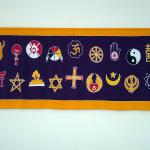This post is a continuation of an edited transcript of my sermon on the gifts of the Spirit.
There are many dangers of prophecy. One example of this is foolish prophecy, which is really nothing more than wishful thinking. It might surprise you to hear me say this, but sometimes it can be a bad idea for a small group of friends to gather and try to hear God for each other. Unfortunately, what often happens is what you wish God would say to that person is then what you think you hear God saying to that person. So we need to be careful about this.
Prophecy is particularly dangerous in the key areas of life. There is so much risk in and so much damage has been done in God’s name by unwise, unsafe prophecy. We should avoid, in almost every case, what I call “hatch, match, or dispatch” prophesies. What’s a “hatch” prophesy? A “hatch” prophesy is when you go up to a lady and say, “I really believe God is going to give you a baby.” Not wise. A “match” prophesy is, “I think you two should get married,” or worse still, when a guy goes to a girl and says, “God has told me that we’re going to get married.” Not wise. The girl might well reply, “Well, he hasn’t told me!” “Dispatch” prophesies are about predicting death—not good. But just as dangerous also are those prophecies where someone has a fatal illness and a foolish person says, “I really feel God has said you’re going to be healed.” Not helpful—it can be very dangerous. Avoid sharing these kinds of prophecy like the plague.
Prophecy can be misleading, and very damaging in foolish hands. Lives can be destroyed by the response of someone to a careless word. In fact, because of this risk, I can understand why at various points throughout history the cry has gone up, “Ban it!” But the Bible does not allow us to do that.
Because of the dangers of prophecy, I would encourage you, if you do have a prophetic word for someone, have a witness present to confirm or correct what is being said, and to relieve any pressure that the person might feel. It’s very wise to say things like, “Well, I need you to weigh this.” “Please check this with your pastor.” “Does this make any sense to you?” Sometimes people deliver a prophetic word and they say, “Does that make any sense?” And the answer is “No.” “What do you mean, it doesn’t make any sense? It was God, wasn’t it?” Well, not necessarily.
How do we recognize true prophecy then? 1 Thessalonians 5:20-21 says this: “Do not despise prophesying.” Unfortunately, many of us, having seen some of the excesses and some of the craziness that has gone on in the name of a so-called prophet, despise prophesying. Don’t despise prophesying, “but test everything, holding fast to the good.” I like that, because, to me, one of the things he seems to be saying is, “Don’t get too worried about the bad.” Obviously we reject the bad, but maybe the issue here is not necessarily pointing out everything that’s wrong in a prophecy, but just letting some of that just pass us by and honing in on and holding fast to the good. It is not the prophet who we test; rather it is the prophetic words. A powerful word can sometimes come from a new Christian. Equally, however, no word is true simply because it came from someone who has a good track record of hearing from God.
We are not told to test the Bible! The Bible, we know, is true. But we have to test prophetic words by what the Bible says. We don’t ask God to speak to us about something he’s already spoken about in the Bible. If you ever go up to a pastor and tell him, “God has told me that I should divorce my wife and marry another woman,” don’t expect a particularly sympathetic hearing, okay? You probably won’t get a very sympathetic response. You’ll be told in no uncertain terms that that’s a false prophecy. But actually, sometimes it’s not as clear-cut as that. In tomorrow’s post I will share a checklist we can use to help us as we test a prophecy that has been given to us.















